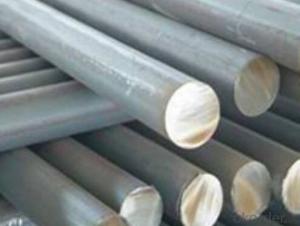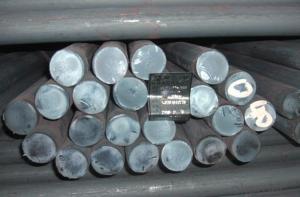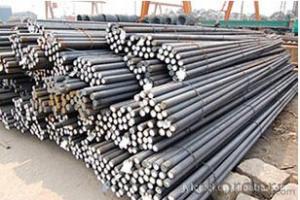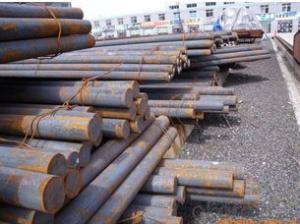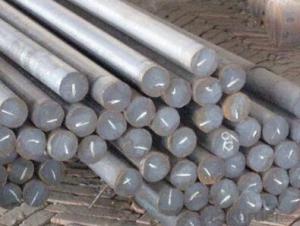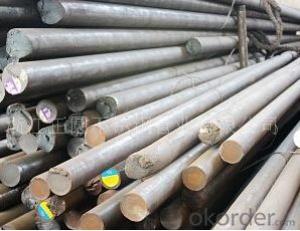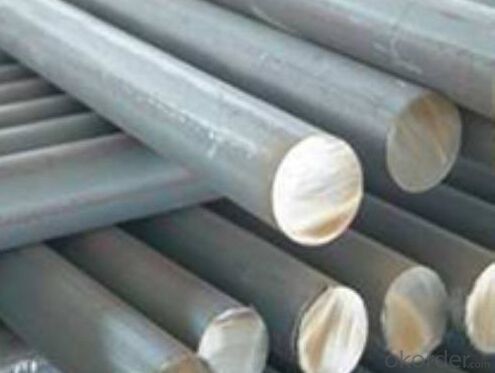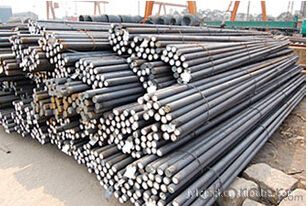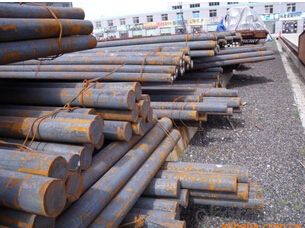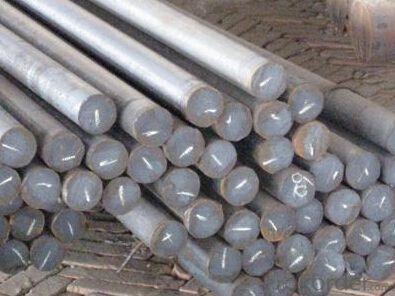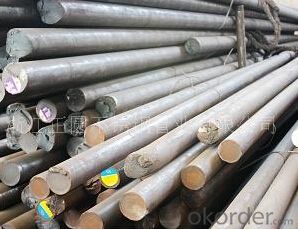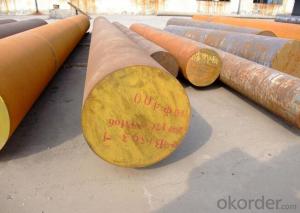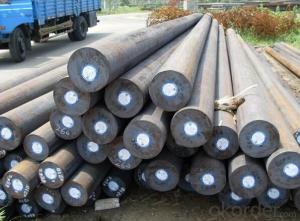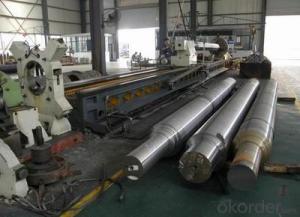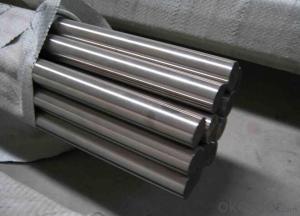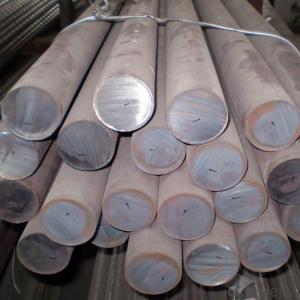Forged Iron Round Steel Bar 42CrMo4 Steel Price
- Loading Port:
- Shanghai
- Payment Terms:
- TT OR LC
- Min Order Qty:
- 3 m.t.
- Supply Capability:
- 100000 m.t./month
OKorder Service Pledge
OKorder Financial Service
You Might Also Like
Specification
Forged Iron Round Steel Bar 42CrMo4 Steel Price
Details Information of Forged Iron Round Steel Bar 42CrMo4 Steel Price
| Name | SAE1045 Carbon Steel Round Bar |
| Shape | Round Bar/Square Bar/Flat Bar/Plate/Wire |
| Standard | GB/ASTM/SAE/AISI/DIN/JIS/EN/BS |
| Surface Treatment: | Black/Peeling/Polished/Machined |
| Delivery Condition: | Hot Rolled or Forged/Peeled or Black Surface |
| Test | SGS/UT 100% Elements Testing |
| Certificate: | ISO/Mill Certificate |
| Service: | 24 hours online service / |
| more than 20 years trading and manufacture | |
| Quality Assurance: | the third party inspection, such as SGS, BV, TUV…etc. is acceptable |
| Packaging Details: | Seaworthy Packaging or as per customer's packing instruction |
| Carbon structure round bar | Q195 Q235A Q235B 10# 20#-55# S45CB |
| Low alloy high strength round bar | Q345A/Q345C/Q345D Q345B Q345E |
| Alloy structure round bar | SAE51B20 20Cr 40Cr 40CrV 20CrMo/30CrMo/35CrMo/42CrMo 20CrMoA/30CrMoA/35CrMoA/42CrMoA/42Cr ML20CrMo/ML30CrMo/ML35CrMo/ML42CrMo B7/SCM435-440 20MnTiB 20CrMnMo 20CrMoH 42CrMoH 40MnB/40MnBH 30Mn2-40Mn2 27SiMn 50CrVA 30CrMnTi |
| Pinion steel | 20CrMnTi 20CrMnTiH 20CrMnTiHCS/20CrMnTiHLD Q20CrMnTi-1/Q20CrMnTi-2 |
| Sucker rod | 20-35CrMoA |
| Free-cutting steel | GT1215S |
| Spring steel | 60Si2MnA 65Mn |
| Ball bearing steel | GCr15 |
Chemical Composition of Forged Iron Round Steel Bar 42CrMo4 Steel Price
| C | Si | Mn | P | S | Cr | Ni | Cu |
| 0.17-0.24 | 0.17-0.37 | 0.35-0.65 | ≤0.035 | ≤0.035 | ≤0.25 | ≤0.25 | ≤0.25 |
| Tensile strength (σb/MPa) | Yield strength (σb/MPa) | Elongation (δ5/%) |
| ≥410(42) | ≥245(25) | ≥25 |
Company Introduction of Forged Iron Round Steel Bar 42CrMo4 Steel Price
CNBM International Corporation is the most import and export platform of CNBM group(China National Building Material Group Corporation) ,which is a state-owned enterprise, ranked in 270th of Fortune Global 500 in 2015.
With its advantages, CNBM International are mainly concentrate on Cement, Glass, Iron and Steel, Ceramics industries and devotes herself for supplying high quality series of refractories as well as technical consultancies and logistics solution.
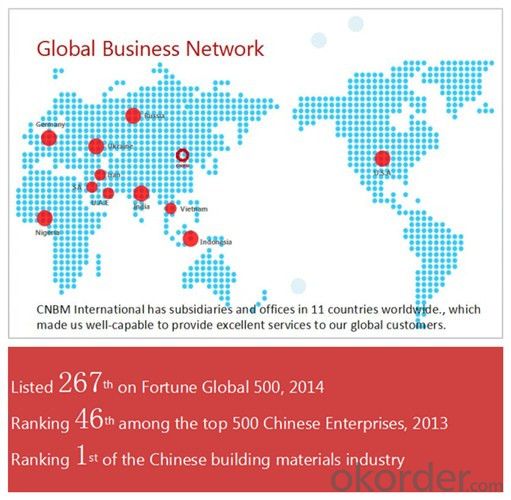
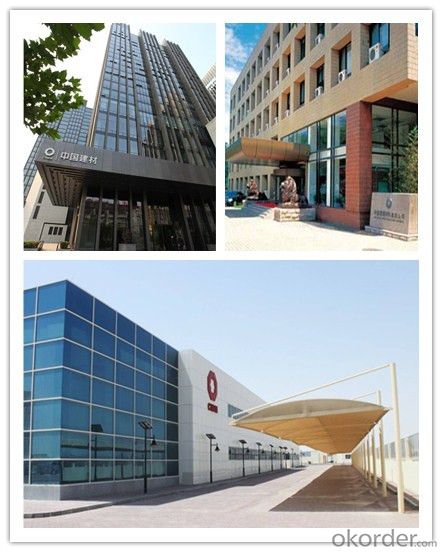
Certificates of Forged Iron Round Steel Bar 42CrMo4 Steel Price
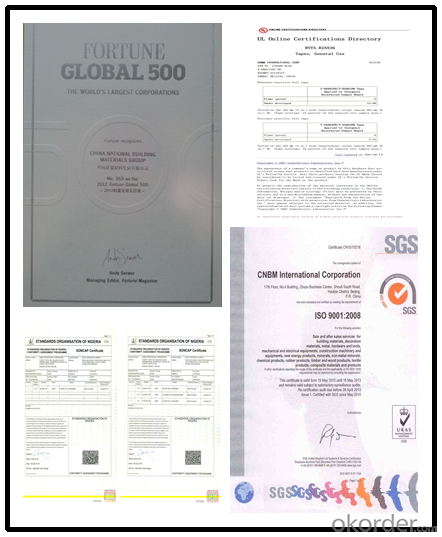
Packaging & Delivery of Forged Iron Round Steel Bar 42CrMo4 Steel Price
Packaging Detail | Sea worthy packing /as per customer's packing instruction |
Delivery Detail | 15 ~ 40 days after receiving the deposit |
Products show of Large Stock Grade S45C Mild steel round Bar Sizes
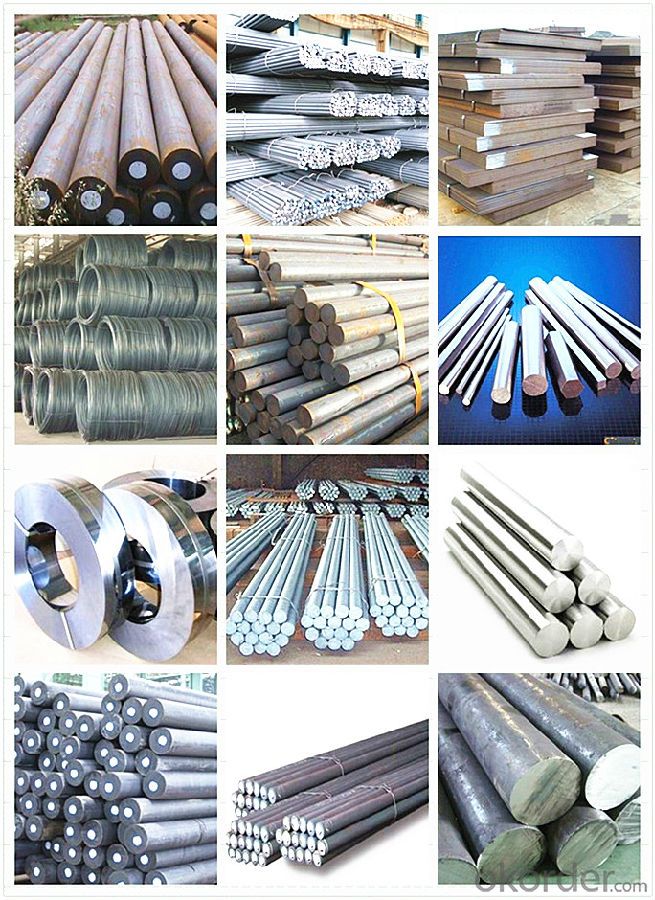
FAQ
Are you a trading company or manufacturer? | Manufacturer |
What’s the MOQ? | 3 metric ton |
What’s your delivery time? | 15-35 days after downpayment received |
Do you Accept OEM service? | Yes |
what’s your delivery terms? | FOB/CFR/CIF |
What's the Payment Terms? | 30% as deposit,70% before shipment by T/T |
Western Union acceptable for small amount. | |
L/C acceptable for large amount. | |
Scrow ,Paybal,Alipay are also ok | |
Why choose us? | Chose happens because of quality, then price, We can give you both. Additionally, we can also offer professional products inquiry, products knowledge train (for agents), smooth goods delivery, excellent customer solution proposals. |
What's your available port of Shipment? | Main Port, China |
What’s your featured services? | Our service formula: good quality+ good price+ good service=customer's trust
|
Where are your Market? | Covering more than 160 countries in the world |
- Q: How does special steel contribute to the energy storage sector?
- Special steel plays a crucial role in the energy storage sector by providing essential components for various energy storage systems. One significant application of special steel is in the manufacturing of batteries, which are essential for storing energy in various forms. Special steel is ideal for battery casings and frames due to its high strength, excellent corrosion resistance, and durability. Battery casings made from special steel can withstand high pressures and protect the internal components from external impacts, ensuring the safety and reliability of the entire energy storage system. Furthermore, special steel is utilized in the production of electrodes, a critical component of batteries. Electrodes require materials that can efficiently conduct electricity while enduring repeated charge and discharge cycles. Special steel, such as stainless steel, possesses excellent electrical conductivity and can withstand the demanding conditions within batteries, making it an ideal choice for electrode manufacturing. Additionally, special steel is employed in the construction of infrastructure for energy storage systems. Steel structures are used to support large-scale energy storage devices like pumped hydro storage facilities and compressed air energy storage systems. These structures must be strong, durable, and resistant to environmental conditions. Special steel provides the necessary strength and corrosion resistance to ensure the longevity and reliability of these energy storage infrastructure projects. In summary, special steel contributes significantly to the energy storage sector by providing essential components for batteries, such as casings and electrodes. It also plays a vital role in the construction of infrastructure for energy storage systems. With its exceptional properties, special steel enhances the safety, efficiency, and durability of energy storage technologies, thereby facilitating the growth and advancement of the renewable energy sector as a whole.
- Q: What are the environmental considerations of using special steel?
- Special steel production has significant environmental considerations. The extraction and processing of raw materials, such as iron and coal, contribute to deforestation, habitat destruction, and greenhouse gas emissions. Moreover, the high energy requirements during steel production result in carbon dioxide emissions, contributing to climate change. Special steel also often requires the use of alloying elements, such as chromium and nickel, which can lead to toxic waste and pollution if not properly managed. Therefore, careful monitoring and implementation of sustainable practices are crucial to minimize the environmental impact associated with using special steel.
- Q: How does special steel perform in pharmaceutical applications?
- Due to its unique properties and characteristics, special steel is highly sought after in pharmaceutical applications. Its exceptional corrosion resistance is especially important in pharmaceutical environments where chemical substances and aggressive cleaning agents are commonly used. This corrosion resistance ensures the steel remains durable and maintains its integrity over time. Furthermore, special steel is renowned for its strength and durability, making it suitable for applications that involve heavy loads or frequent use. This strength allows the steel to withstand the demanding requirements of pharmaceutical processes, such as mixing, grinding, and sterilization, without compromising its structural integrity. Another significant advantage of special steel in pharmaceutical applications is its hygienic properties. It is highly resistant to bacterial growth and easy to clean, making it perfect for environments where cleanliness and sterility are of utmost importance. The smooth surface of special steel prevents the accumulation of dirt, bacteria, and other contaminants, reducing the risk of contamination and ensuring the safety and quality of pharmaceutical products. Moreover, special steel offers excellent temperature resistance, enabling it to endure extreme temperatures and thermal cycling commonly encountered in pharmaceutical processes. This thermal stability guarantees that the steel retains its mechanical properties and dimensional stability, even under fluctuating temperature conditions. Overall, special steel's corrosion resistance, high strength, hygienic properties, and temperature resistance make it a trustworthy and versatile material for pharmaceutical applications. Its exceptional performance in these challenging environments contributes to the production of safe and high-quality pharmaceutical products.
- Q: How does the addition of nickel enhance the properties of special steel?
- The addition of nickel to special steel enhances its properties in several ways. Firstly, nickel increases the strength of steel, making it more durable and resistant to deformation. This is especially important in applications where the steel will be subjected to high temperatures or heavy loads. Additionally, nickel improves the corrosion resistance of steel. It forms a protective oxide layer on the surface of the steel, preventing it from rusting or corroding when exposed to moisture or harsh chemicals. This is particularly valuable in industries such as marine, aerospace, and chemical processing, where steel is frequently exposed to corrosive environments. Furthermore, nickel improves the toughness of steel, meaning that it can withstand impact or sudden changes in temperature without fracturing or cracking. This makes it suitable for applications that require high resistance to shock or vibration, such as in construction, automotive, or machinery manufacturing. Moreover, the addition of nickel enhances the heat resistance of steel. Nickel increases the steel's ability to retain its strength and shape at high temperatures, making it suitable for applications in high-temperature environments, such as in power generation, oil and gas, or furnace systems. In summary, the addition of nickel to special steel enhances its strength, corrosion resistance, toughness, and heat resistance. These improved properties make nickel-enhanced steel highly desirable in a wide range of industries and applications, where durability, reliability, and performance under challenging conditions are paramount.
- Q: What are the different methods for joining special steel components?
- There exist various techniques for connecting special steel components, each having its own merits and limitations. Some commonly utilized methods are as follows: 1. Welding: This approach is extensively employed for joining steel components. It entails melting the edges of the components and merging them together. Welding can be executed using diverse techniques, including arc welding, gas welding, or laser welding, depending on the project's specific demands. 2. Bolting: Bolting necessitates the utilization of bolts, nuts, and washers to connect steel components. This method is favored for applications where disassembly or maintenance may be required. It offers a robust and dependable connection, although it may not be suitable for high-stress situations. 3. Riveting: Riveting involves the employment of metal fasteners known as rivets to connect steel components. This method is commonly employed in applications requiring high strength and resistance to vibration. Riveting is a permanent joining technique that delivers a sturdy and long-lasting connection. 4. Adhesive bonding: Adhesive bonding involves utilizing high-strength adhesives to connect steel components. This method is preferred when aesthetics and weight reduction are important. Adhesive bonding can yield a strong and durable connection, although surface preparation and adhesive selection are crucial for ensuring the bond's strength. 5. Mechanical fastening: Mechanical fastening techniques, such as using screws or clips, can also be employed to connect special steel components. This method is often used for temporary connections or components that necessitate easy assembly and disassembly. Each joining method possesses its own advantages and considerations, and the selection of a method depends on factors such as the specific application, load requirements, expected lifespan, cost considerations, and the nature of the steel components being connected. It is essential to thoroughly assess these factors and consult experts to determine the most suitable joining method for a given project.
- Q: How does special steel contribute to the industrial equipment industry?
- Special steel plays a crucial role in the industrial equipment industry by providing superior strength, durability, and resistance to various harsh conditions. Special steel alloys are specifically engineered to possess exceptional properties that make them suitable for a wide range of applications in industrial equipment. One of the key contributions of special steel to the industry is its ability to withstand high temperatures and pressure. This makes it an ideal material for manufacturing components such as boilers, turbines, and heat exchangers. Special steel's high heat resistance ensures that these equipment can operate efficiently and reliably in demanding environments, thereby enhancing overall performance and safety. Furthermore, special steel is renowned for its excellent corrosion resistance, making it highly suitable for manufacturing equipment that comes into contact with corrosive substances. This includes chemical processing equipment, oil and gas pipelines, and marine structures. By using special steel in these applications, the industrial equipment industry can ensure longer operational lifetimes, reduce maintenance costs, and minimize the risk of catastrophic failures. Special steel also contributes to the industry by enabling the production of equipment with superior mechanical properties. Its unique composition and heat treatment processes allow for increased strength, toughness, and wear resistance. As a result, industrial equipment made from special steel can handle heavy loads, endure extreme conditions, and provide long-lasting performance. Additionally, special steel alloys can be tailored to meet specific requirements, allowing for the production of custom-made components. This flexibility enables the industrial equipment industry to design and manufacture equipment that meets the exact needs of various sectors, including aerospace, automotive, energy, and construction. Special steel's versatility and adaptability thus play a vital role in driving innovation and technological advancements within the industry. In conclusion, special steel significantly contributes to the industrial equipment industry by providing exceptional strength, durability, resistance to harsh conditions, and customized solutions. Its unique properties make it an essential material for manufacturing a wide range of equipment, ultimately enhancing performance, reliability, and safety across various sectors.
- Q: What is the impact of impurities on the properties of special steel?
- Impurities in special steel can have a significant impact on its properties. These impurities can affect the steel's strength, toughness, corrosion resistance, and overall performance. For instance, excessive levels of impurities like sulfur and phosphorus can reduce the steel's ductility and make it more prone to cracking. Similarly, high amounts of carbon impurities can affect the steel's hardness and make it more brittle. Therefore, controlling and minimizing impurities is crucial in ensuring that special steel meets the desired quality and performance requirements.
- Q: How is high-speed tool steel used in the production of machining tools?
- High-speed tool steel is used in the production of machining tools due to its exceptional heat resistance, hardness, and wear resistance. It allows for the efficient machining of materials at high speeds, reducing production time and enhancing productivity. This steel is commonly utilized in the manufacturing of cutting tools, such as drills, milling cutters, and taps, to ensure precision and durability in machining operations.
- Q: How does special steel perform in high-temperature hydrogen environments?
- Special steel is specifically designed to perform well in high-temperature hydrogen environments. It exhibits excellent resistance to hydrogen embrittlement and maintains its mechanical properties even at elevated temperatures. This makes it a reliable and durable material choice for applications in such environments.
- Q: Can special steel be used in the packaging industry?
- Yes, special steel can be used in the packaging industry. Special steel, such as stainless steel or high-strength steel, offers excellent durability, corrosion resistance, and strength properties. These characteristics make it suitable for manufacturing various packaging materials and equipment, including containers, drums, cans, and machinery. Additionally, special steel's versatility allows for customization and adaptation to meet specific packaging requirements, making it a preferred choice in the industry.
Send your message to us
Forged Iron Round Steel Bar 42CrMo4 Steel Price
- Loading Port:
- Shanghai
- Payment Terms:
- TT OR LC
- Min Order Qty:
- 3 m.t.
- Supply Capability:
- 100000 m.t./month
OKorder Service Pledge
OKorder Financial Service
Similar products
Hot products
Hot Searches
Related keywords
